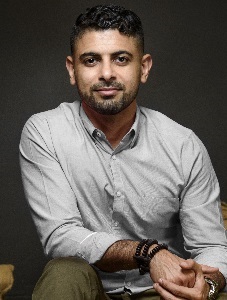JUNE 28, 2019
Press Release: On the Resolutions Introduced in The House and Senate Condemning the Houthi Extremists in Yemen by Representative Will Hurd and Senator Tom Cotton.
The Embassy of Yemen supports the concurrent resolutions introduced in the House and Senate by Representative Will Hurd (R-TX-23) and Senator Tom Cotton (R-AR) condemning the Houthi extremists in Yemen for their human rights violations, violence against Yemeni civilians and ties to Iran.
“For years, the Houthis and their Iranian backers have violated international human rights law and committed war crimes with the goal of spreading their violent, hateful, anti-Semitic ideology,” said Dr. Ahmed Awad BinMubarak, Ambassador of Yemen to the United States. “We welcome these congressional resolutions, which recognize Houthis as an international threat and the bad actors that they truly are. In order to reach a peaceful, political solution in Yemen, the United States must remain fully engaged in Yemen, and apply maximum diplomatic, political and economic pressure on the Houthis to bring them to the negotiating table. We urge all members of Congress to pass these resolutions and to support the government of Yemen as it seeks to restore peace and stability to the country.”
The Houthis have committed thousands of atrocities since they began the conflict in 2014. They have littered the country with more than a million landmines that have maimed and murdered innocent men, women and children. They have recruited thousands of children into their military ranks through coercion and bribery, tearing families apart and deeply harming an entire generation of youth. They have diverted critical humanitarian aid and food supplies from the mouths and homes of the needy, exploiting aid supplies on such an extreme scale that the World Food Programme has suspended aid in many Houthi-controlled areas.
Further, Iran has played a major and nefarious role in this conflict by illegally providing weapons, munitions, military training, drone technology and ballistic missile capabilities to the Houthi militias. Recently, Iran has escalated its aggressive posturing in the region by attacking foreign oil tankers and even US drones. In light of these grave threats and affronts to stability and peace in the region, we urge the US Congress to pass these resolutions and condemn Iran for its malign activity in Yemen and the broader Gulf region. We cannot allow the Iranian regime to continue down the warpath it currently treads, or to use Yemen as a platform and the Houthis as a proxy for its violent revolution.

























